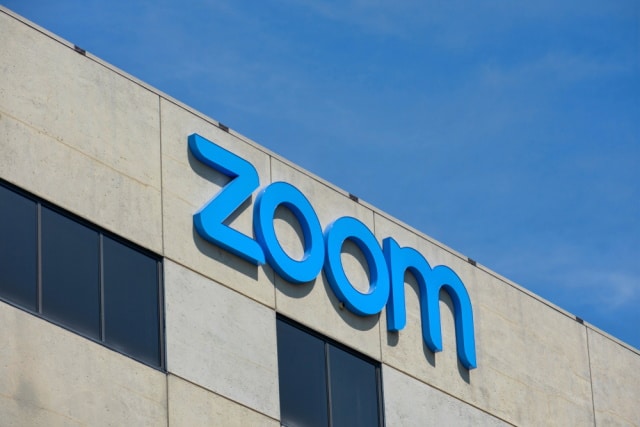Zoom isn't giving non-paying users end-to-end encryption because they could be criminals

Zoom's meteoric rise in popularity due to COVID-19 forcing more people to work from home led to a great deal of interest in the video conferencing tool's security and privacy. The lack of end-to-end encryption was a major concern for many users, but following the recent acquisition of Keybase, Zoom CEO Eric S Yuan said it would "help us build end-to-end encryption that can reach current Zoom scalability".
Well, end-to-end encryption is here. But only if you're a paying Zoom customer. Anyone using a free account is being left out in the cold. Why? Because, Yuan explains, "we also want to work together with FBI, with local law enforcement in case some people use Zoom for a bad purpose". Yuan is apparently of the impression that paying customers could not possibly be potential criminals.
See also:
- You need to take action if you want to avoid being cut off from Zoom
- Zoom is gaining end-to-end encryption following acquisition of Keybase
- Zoom claims to have 300 million daily active users... and then backtracks on misleading statement
The startling claim came in an earnings call. Speaking about the arrival of end-to-end encryption for paying customers, Yuan said: "Free users for sure we don't want to give that because we also want to work together with FBI, with local law enforcement in case some people use Zoom for a bad purpose".
Zoom should not be surprised by the fact that this comment has not gone down well. Framing anyone who is unwilling to pay to use the service as being a potential criminal and people that may be of interest to the FBI is far from great customer relations.
Privacy group Privacy Matters tweeted in response to the news:
👀 This is a bizzare policy to say the least. Zoom. Perhaps it should have said “Y’all free users are just potential criminals. Y’all don’t deserve e2e protection” https://t.co/HKKFWHk8Mn
— Privacy Matters (@PrivacyMatters) June 3, 2020
Privacy advocate Evan Greer, from Fight for the Future, is similarly unimpressed:
Basic security shouldn’t be a premium feature that's only available to wealthy individuals and big corporations. It's just plain gross for the company to say they’ll only keep your calls safe and secure if you pay extra.
A Zoom spokesperson told the Guardian: "We do not share information with law enforcement except in circumstances like child sex abuse. We do not have backdoors where anyone can enter meetings without being visible to others. None of this will change". They also pointed out that the company does not "proactively monitor meeting content".
Zoom does have something of a history of responding to user requests and criticism, so it is possible that the backlash that seems likely to follow the introduction of end-to-end encryption for only paying customer will result in a change of direction at some point.
Image credit: Michael Vi / Shutterstock
